Fields of Discovery: Proteins, PICKLES and pencils

Enjoying the cool temperature of her lab on a hot summer day, Elysia Uggen sits sketching. As suggested by her mentor biochemistry department head Joe Ogas, Uggen is drawing to challenge how well she understands protein function in plant life.
This summer, Ogas’ lab is studying protein function in the Arabidopsis plant. Specifically, they’re focusing on plants that have a mutation in a gene called PICKLE, which makes a plant develop darker pickle-like leaves. To examine the function of PICKLE, Ogas’ team inserted an enzyme into the plant’s DNA that tags several specific proteins that PICKLE interacts with.
The research conducted this summer could have a broad impact. The team is studying plant pathways that have corresponding pathways in animals, which could continue to develop our collective understanding of animal genetics, Uggen explains.
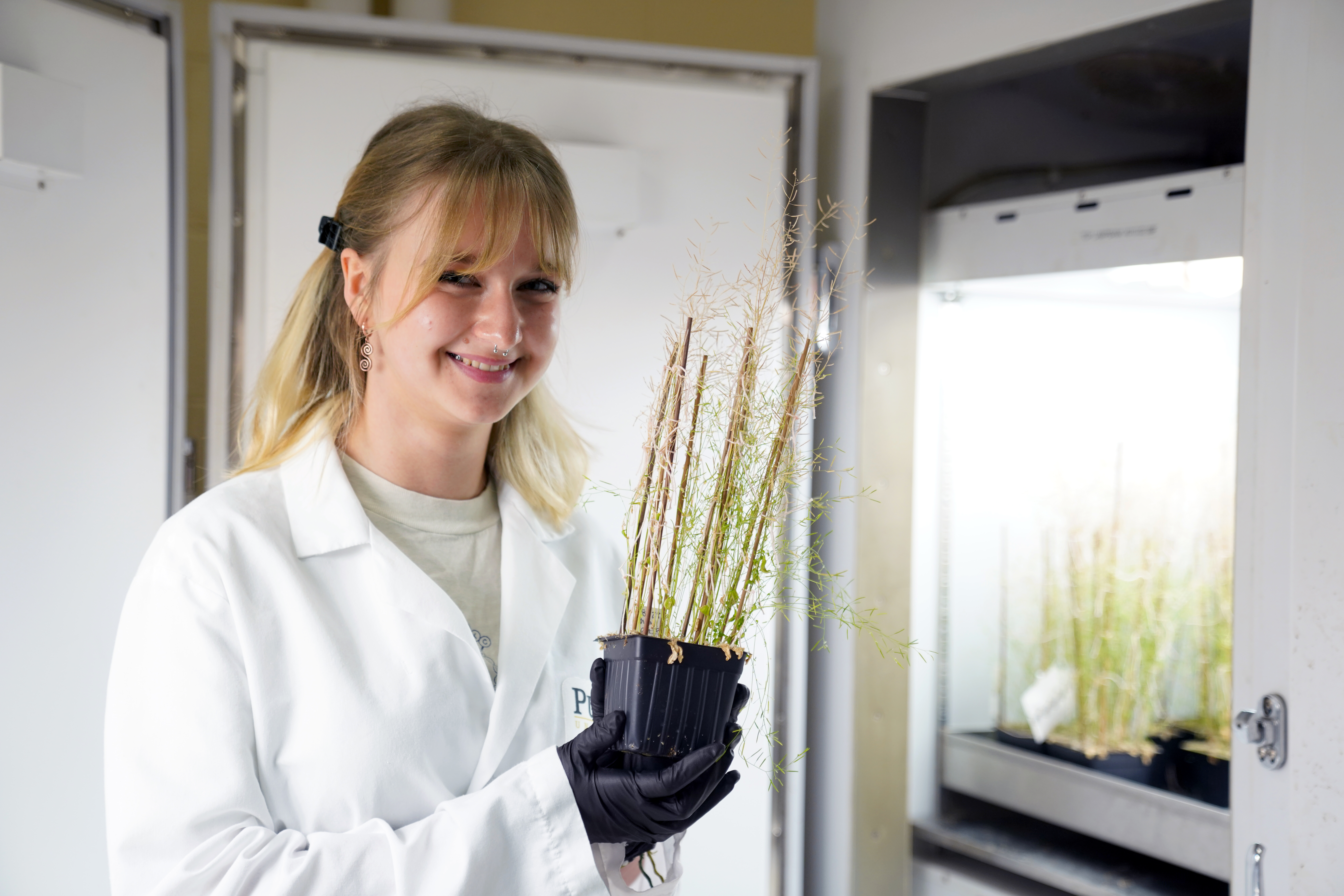 Uggen smiles at the camera while holding an Arabidopsis plant she is researching.
Uggen smiles at the camera while holding an Arabidopsis plant she is researching. 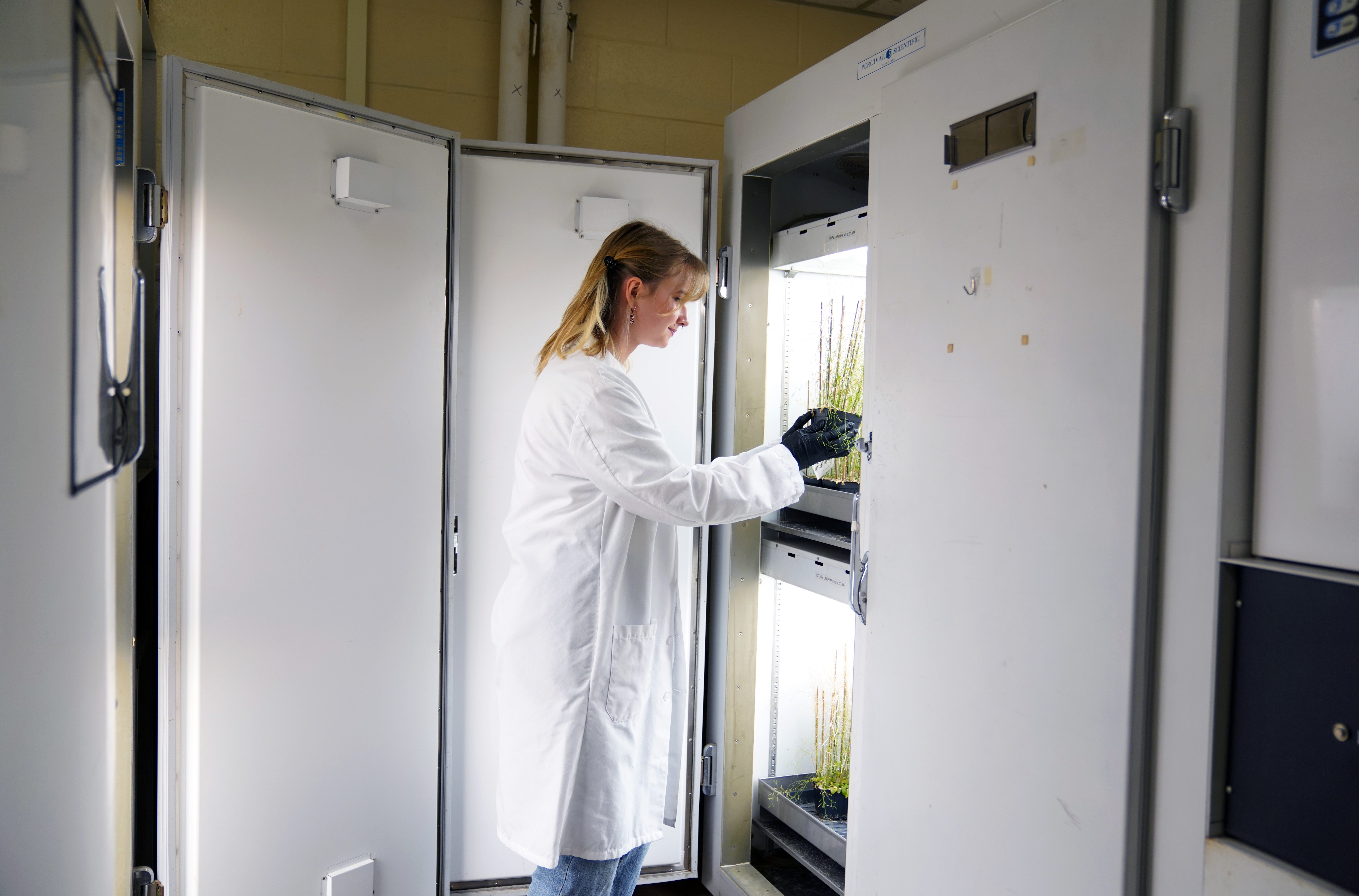 Uggen examines an Arabidopsis plant.
Uggen examines an Arabidopsis plant. So far, Uggen has enjoyed her research experience— and it’s not just because of the science. “I get time to spend with other members of my lab. Being closer to people in your lab makes going to work more fun.”
Uggen has often found community in research. Her interest in research started at a young age. “I knew pretty early on, starting in middle school, that I wanted to do something in science,” Uggen recounts. She took Project Lead The Way courses in middle and high school, which included courses on biomedical research. This is where her interest in biochemistry began and grew.
She selected Purdue University for one primary reason: the College of Agriculture’s Department of Biochemistry.
“I looked into this department and I really liked what it stood for,” Uggen says. A priority for the department is getting students into research early on in their education, which Uggen says has been very beneficial for her.
When prompted about what she thinks makes her a good fit for a career in research, Uggen describes her unending curiosity. “Many of life’s discoveries were discovered because someone saw something they didn’t understand and asked necessary questions. I am constantly wanting to learn more; I don’t turn my back on things I don’t understand.”
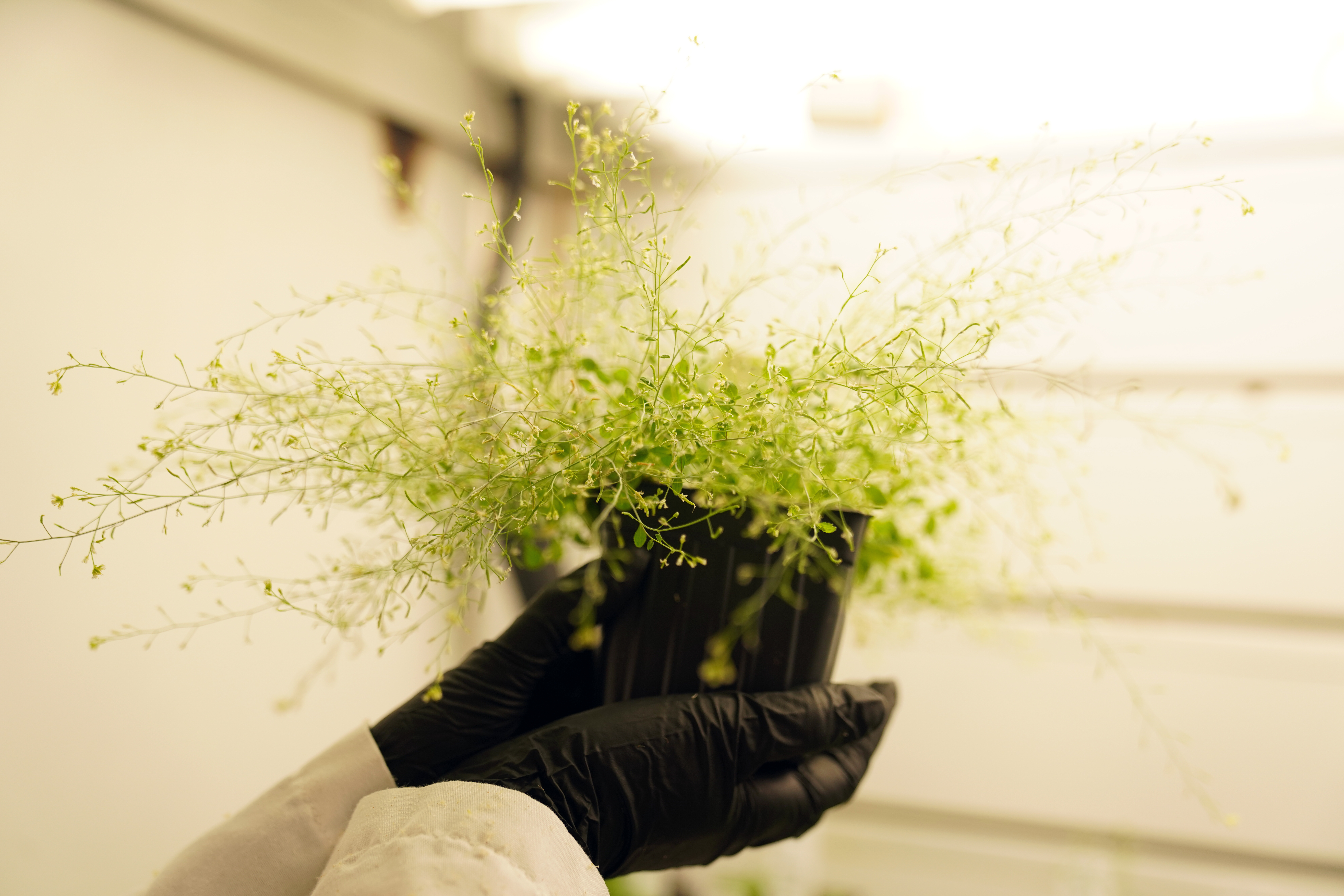 Uggen holds an Arabidopsis plant she is studying.
Uggen holds an Arabidopsis plant she is studying. 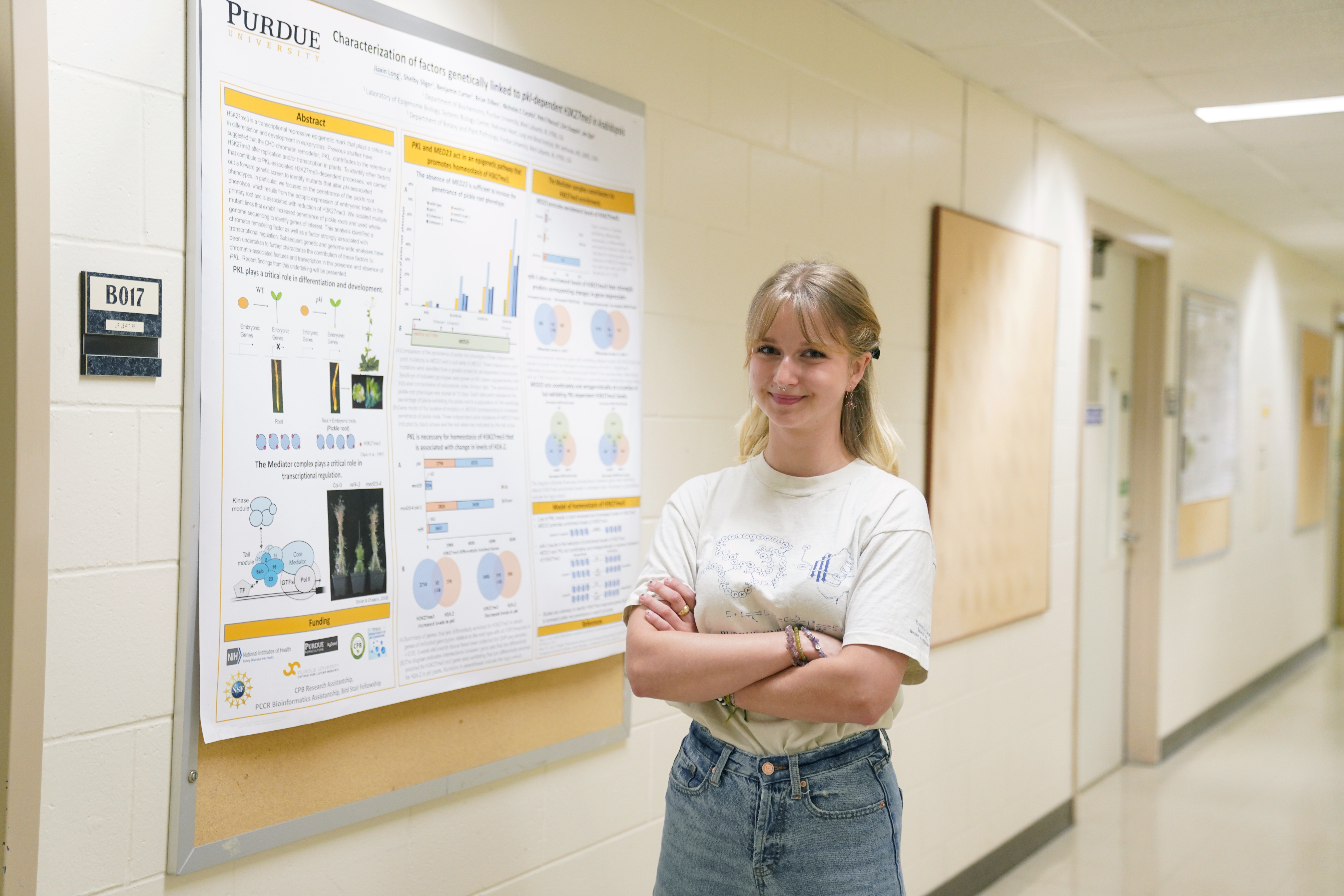 Uggen poses and smiles outside of the lab she is working in this summer.
Uggen poses and smiles outside of the lab she is working in this summer. Uggen plans to graduate in the Spring of 2027. A rising sophomore, she is considering pursuing graduate education. While she hasn’t decided what specifically she plans to study, she is interested in pursuing medicinal research and potentially becoming a professor. But, like her mentor Ogas suggests; she’s still drawing that plan out.
“Drawing something makes you examine what you're thinking,” Uggen reflects. “I feel like Dr. Ogas is very good at challenging students to think differently.”
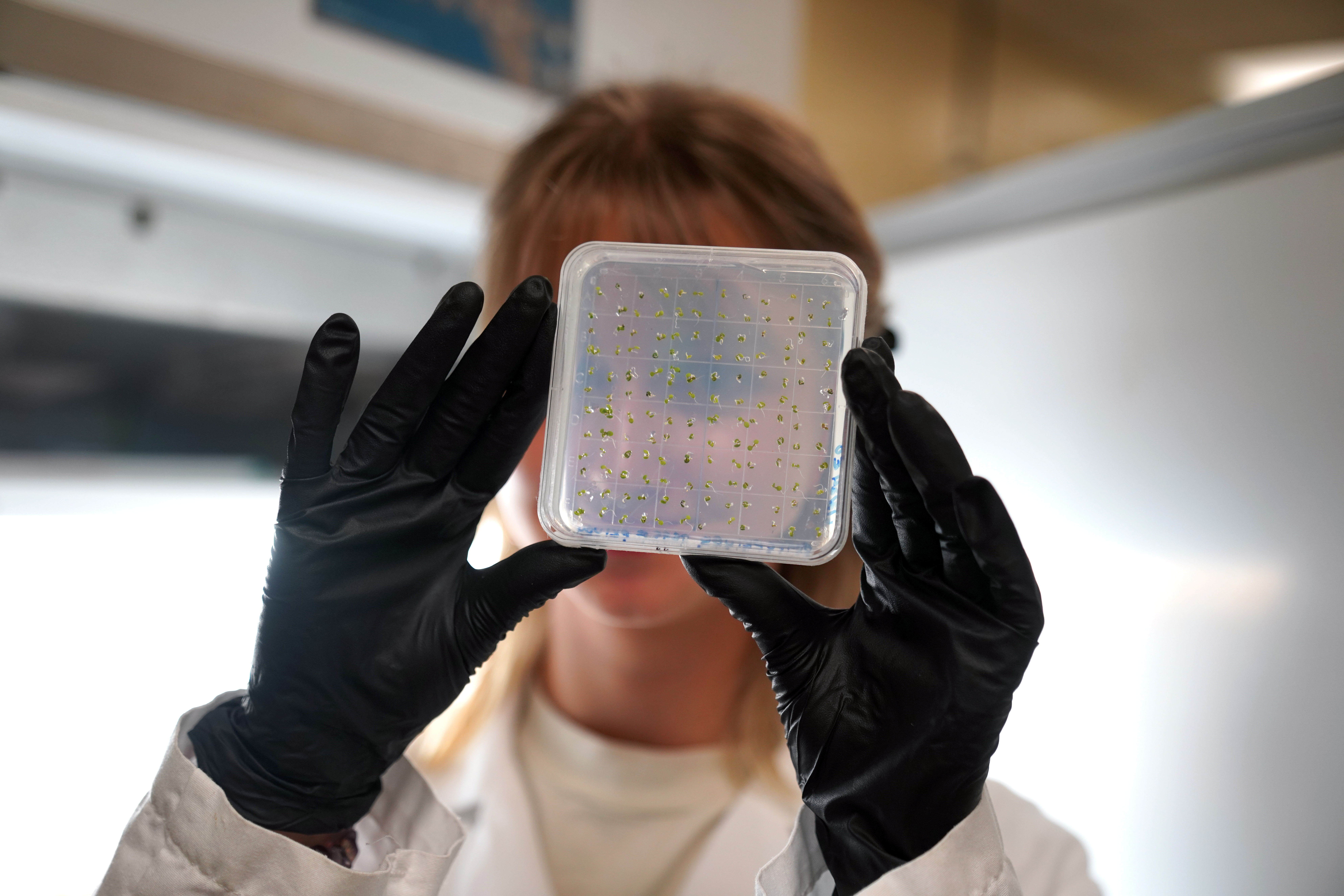 Uggen examines seedlings.
Uggen examines seedlings. 





